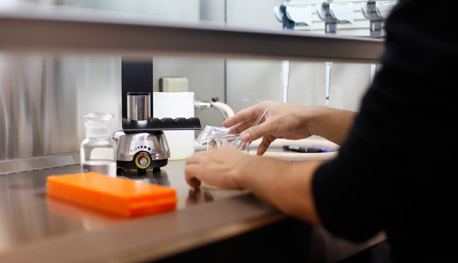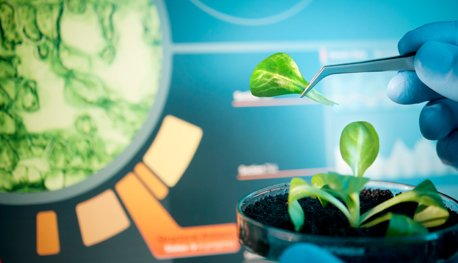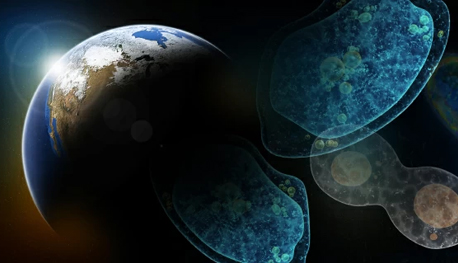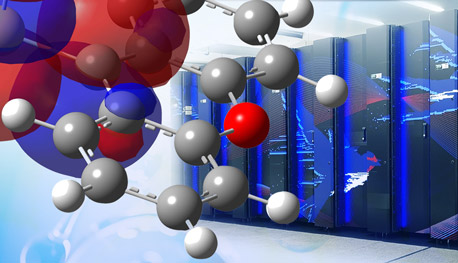Education
Life Science and Technology Undergraduate MajorCurriculum
Specialized education built on a broad foundation —
a solid footing for researchers and engineers
Students in their first year receive a thorough grounding in basic science and technology. When they advance to their second year, they take courses at the 200-levels specific to the Life Science and Technology Major. These include physical chemistry, organic chemistry, biochemistry, and molecular biology, which are imperative to the study of life science and technology. In their second and third year, students take courses that suit the research fields they wish to pursue and acquire basic expertise in life science and technology. Students will also develop ethical awareness by learning bioethics as well as related laws and regulations. Furthermore, students are required to take laboratory courses and exercise courses to develop their data analysis abilities, and to deepen their understanding in life phenomena, which enables them to cultivate knowledge and skills required of science and technology students.
The Independent Research Project and research opportunity courses are regarded as the final stage of one’s undergraduate studies. Through these courses, students learn research methods, including how to create research plans, from multiple faculty members. In the Independent Research Project, students set up a research theme together with their academic supervisors and work on improving their problem-solving skills. In addition, students develop basic cultural insight and effective international communication skills through overseas training or internship experience.
-
1st Year
- 100-Level Courses
-
Students in their first year of undergraduate studies receive basic education that centers on Institute-wide compulsory courses regardless of their discipline. The 100-level courses are designed to teach common, basic skills that are required of science and technology students. The aims of these courses are to provide knowledge and cultivate versatile intellect necessary for studying at the Institute.
-
2nd Year
3rd-Year- 200-Level and 300-Level Courses
-
Students who complete their 100-level courses advance to study their undergraduate major. Courses at the 200- and 300-levels specific to the Life Science and Technology Major are taken in accordance with the curriculum.
-
- 200-Level Courses
- Students in their first year receive a thorough grounding in basic science and technology. When they advance to their second year, they take courses at the 200-levels specific to the Life Science and Technology Major. These include physical chemistry, organic chemistry, biochemistry, and molecular biology, which are imperative to the study of life science and technology.
-
- 200-Level Elective Courses
- With 200-level courses specific to the Life Science and Technology Major serving as a basis, students also study electives which suit the research fields they wish to pursue to acquire basic expertise in life science and technology.
-
- 300-Level Courses
- From their studies in 200-level courses specific to the Life Science and Technology Major, students advance to acquire expertise in life science and technology by taking electives that suit the research fields they wish to pursue or the laboratories they wish to join. Students will also develop ethical awareness by learning bioethics as well as related laws and regulations.
-
- Creativity Development/Exercise/Laboratory Courses
- By taking compulsory laboratory and exercise courses as well as creativity development courses, students can develop data analysis abilities and deepen their understanding in life phenomena. It also enables them to cultivate knowledge and skills required of science and technology students.
-
- Study Abroad / Internship Courses
- Students develop basic cultural insight and effective international communication skills by participating in a number of internship and overseas training courses.
-
-
4th Year
- 200-Level and 300-Level Courses
-
At the final stage of the 300-level is the Independent Research Project (equivalent to the Undergraduate Thesis Research that was in place previously). The project is intended to serve as a capstone for students to consolidate and reinforce all of the skills acquired in their major. Furthermore, they may choose to enroll in the Advanced Independent Research Project. The purpose of this course is to enhance student interest in scientific and technological research that began with the Independent Research Project, as it provides the opportunity for them to actively engage in science- and technology-related activities.
* The timeline depicts a standard case where students complete their bachelor's degree program in four years.
-
Entrance Examination
Students need to pass an entrance exam to advance from a bachelor's to a master's program. To advance from a master's to a doctoral program, students must pass an advancement assessment.
-
Graduate Majors
Master's Program
Doctoral Program- 400-Level, 500-Level, and 600-Level Courses
-
Students who complete the Life Science and Technology Undergraduate Major may continue to study the same discipline in more depth by taking the Life Science and Technology Graduate Major. There are also closely related interdisciplinary graduate majors — Science and Technology for Health Care and Medicine, Earth-Life Science, and Materials and Information Sciences — to which students may advance.
-
- Department that offers this graduate major
-
- Life Science and Technology
-
- Departments that offer this graduate major
-
- Departments that offer this graduate major
-
- Earth and Planetary Sciences/
- Chemical Science and Engineering/
- Life Science and Technology
-
- Departments that offer this graduate major
-




